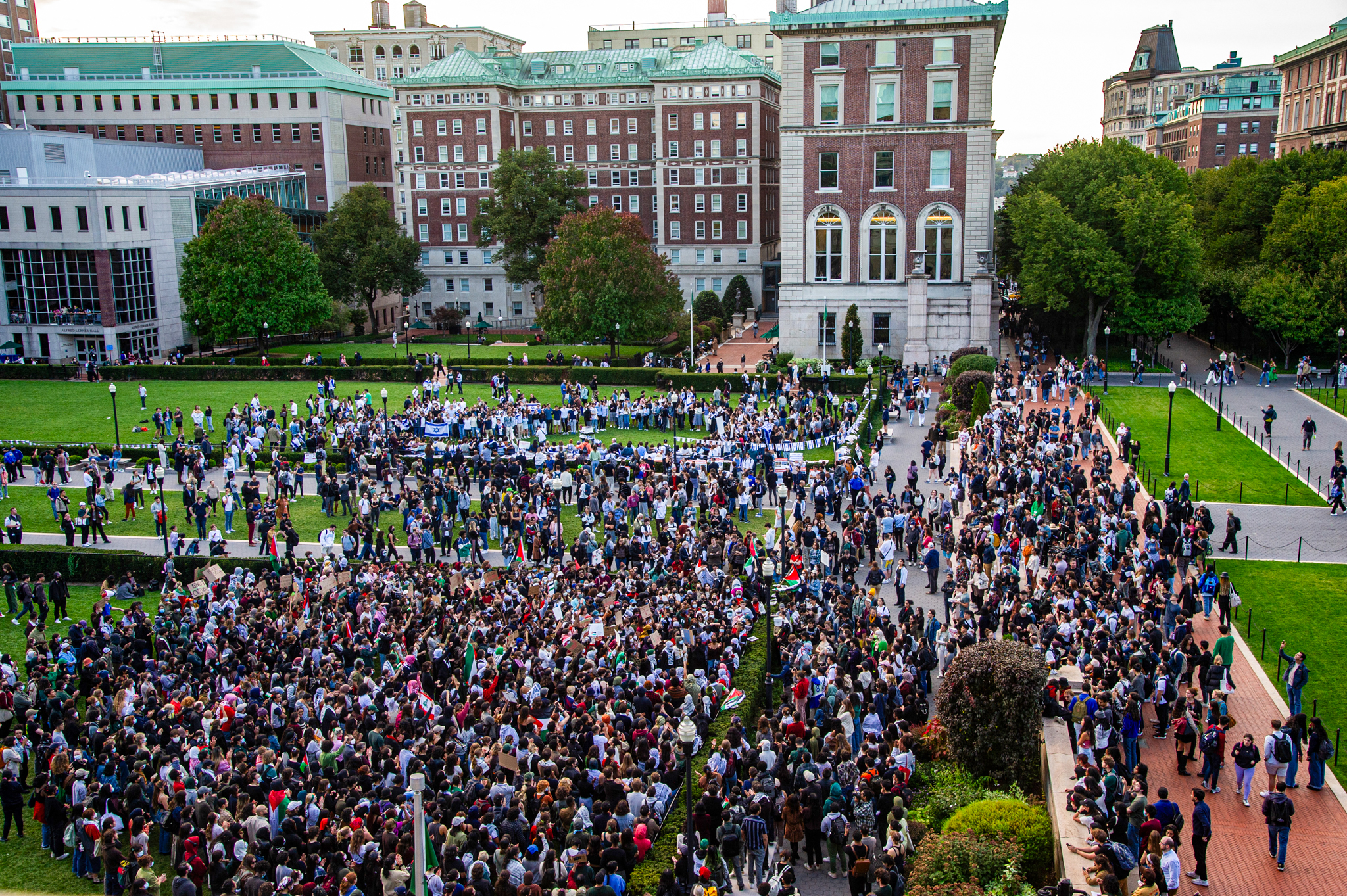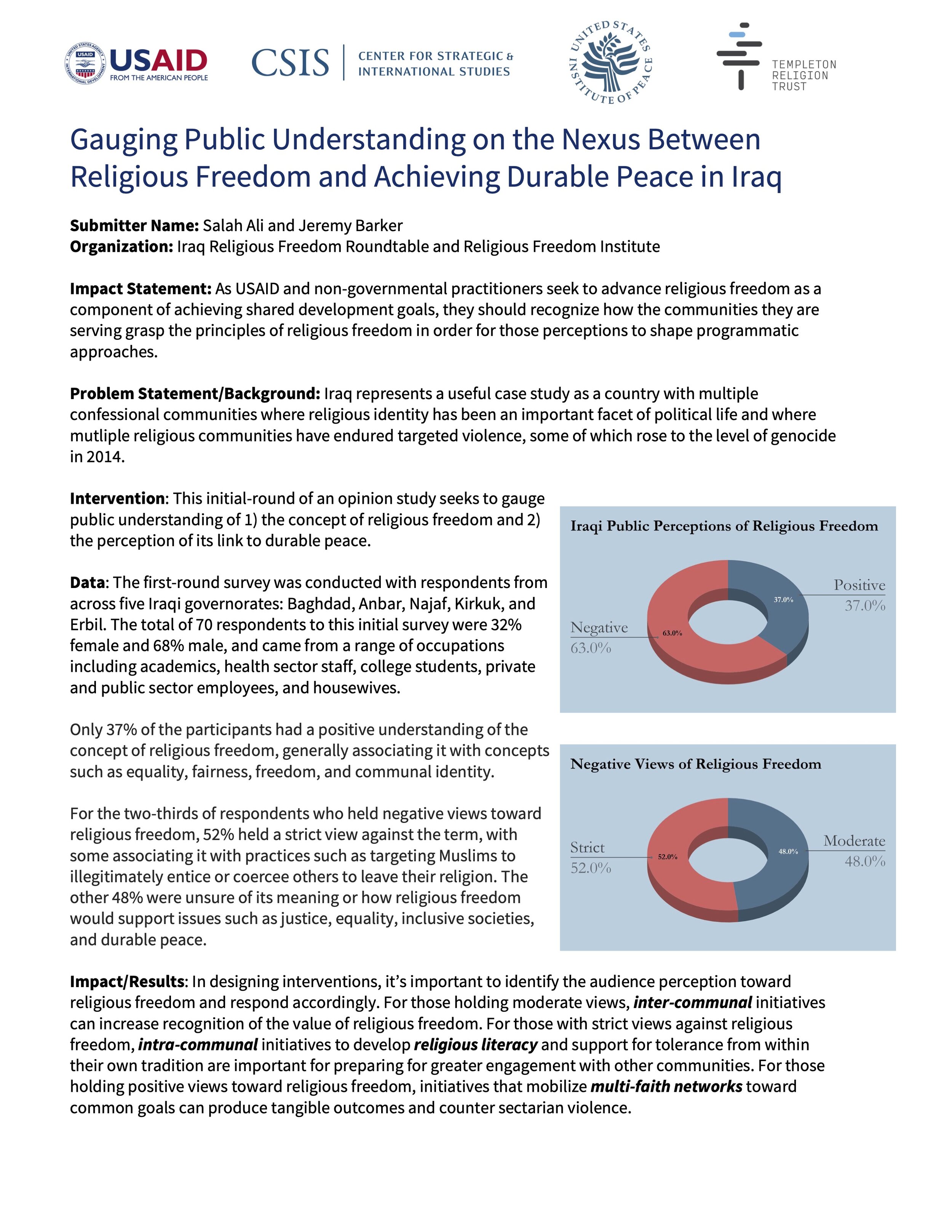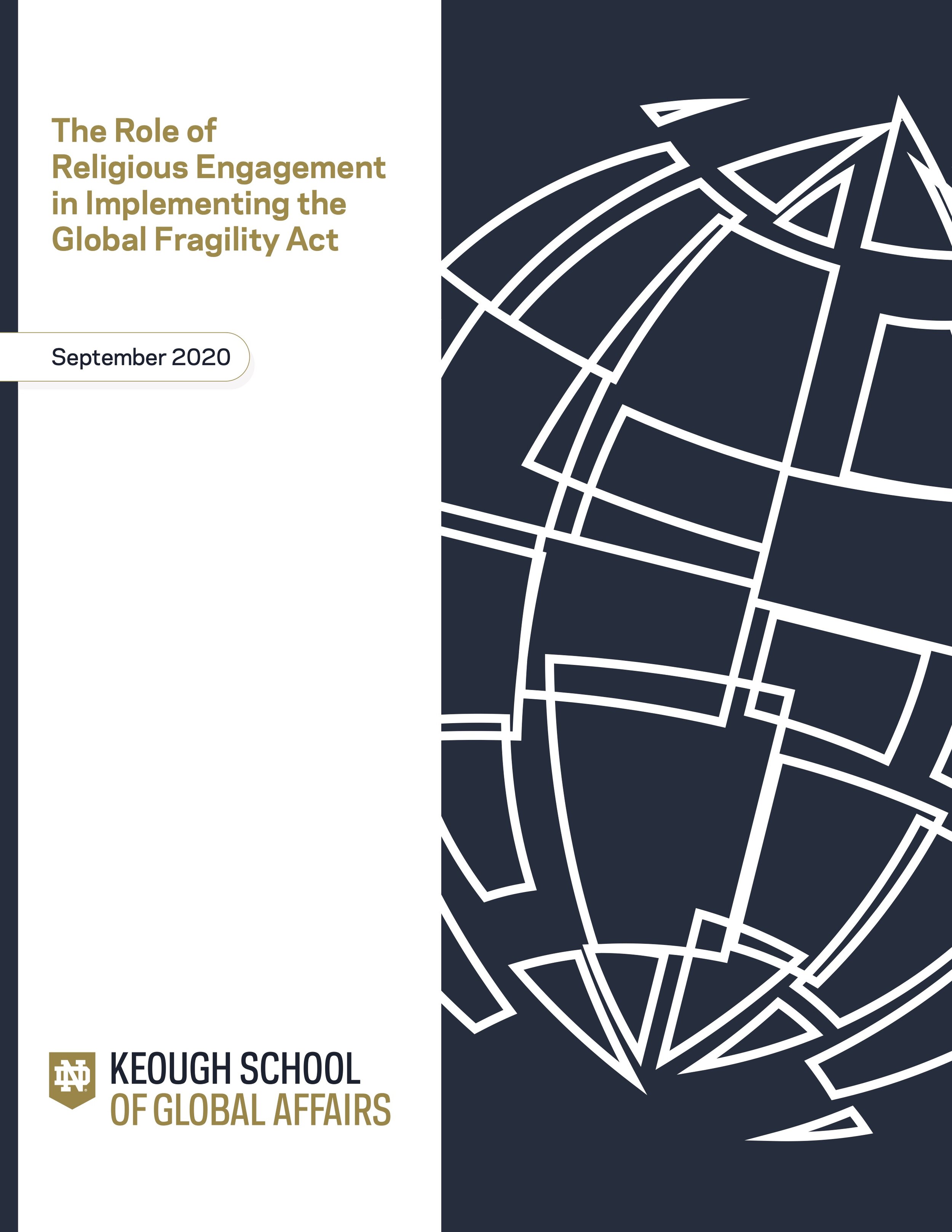On the margins of the 2020 Ministerial to Advance Religious Freedom, RFI hosted an online event entitled “Vulnerabilities in the Blindspot”: Religious Freedom and Progress toward the Sustainable Development Goals.
In order to achieve goals such as SDG 10 to “Reduce inequalities within and among countries” and SDG 16 to “Promote just, peaceful and inclusive societies.” issues of violent persecution, repression and discrimination must be addressed. In times of conflict or crisis, there are particular vulnerabilities that religious communities face and the role of engaging religious actors to address inequalities.
The event featured contributions from Rebecca Shah, Principle Investigator of the Religion and Economic Empowerment Project, University of Notre Dame Professor Gerard Powers, director of the Catholic Peacebuilding Network, and Salah Ali, a Fellow with RFI’s Middle East Action Team and General Coordinator of the Iraq Religious Freedom Roundtable, and was moderated by Jeremy P. Barker, Director of RFI’s Middle East Action Team.
Shah began the discussion by highlighting important reasons to protect and assist vulnerable religious minorities. Drawing from recommendations made in the Guidance Note: Protecting Vulnerable Minorities in Conflict and Crisis Settings (RFI, 2020), She noted that there is clear evidence that protection for religious minorities and religious freedom generally is related to empowering of people in poverty. In this sense, Shah observed, religious freedom protections increase the resilience of disadvantaged populations to economic and social upheavals. Therefore, religious freedom is implicated in achieving multiple Sustainable Development Goals.
Professor Powers spoke about the importance of interreligious peacebuilding. He nevertheless observed a paradox: the closer religious issues are to the heart of a conflict, the more important interreligious peacebuilding becomes, but the further away religious issues are from the heart of a conflict, the more fruitful interreligious peacebuilding becomes. Pointing to the experience of U.S. policies in Iraq and Syria over the past 20 years, Professor Powers noted how a failure to understand and address the religious dynamics can enflame conflict. Powers suggested that policy makers and practitioners utilize a “religious environment impact statement.” Impact statements are commonly produced and used in a variety of policy and legislative contexts, and the same principle can be effectively applied to religion to understand the dynamics of a given challenge.
Ali continued the discussion by stating that there is a lack of effort by the Iraqi government in promoting religious freedom in the country. There have been many instances of government enabled repression of minority religion in Iraq in the past few decades. This has significantly contributed to violence and conflict. Ali observed that government repression of this nature has engendered similar tendencies among the citizenry, creating a culture that in some cases is hostile to religious freedom. This hostility and intolerance have led to violence, conflict, and even genocide. Ali fears that if the situation of minority religions continues like it is today, “Iraq might not have any religious minorities in 10 years.”
During his presentation, Ali highlighted the Iraqi Freedom Roundtable. The main purpose of the Roundtable is to create a platform for religious minorities to share ideas and knowledge in promoting religious freedom in the country. The roundtable table includes members of all religious minorities in Iraq. Regrettably, there is currently no societal consensus supporting religious freedom. The Roundtable has recently produced a report in collaboration with RFI, investigating the public understanding of religious freedom and peace in Iraq. They discovered that the majority of people have negative views towards religious freedom and that many of the participants did not associate peacebuilding with religious freedom. Therefore, Ali concluded that we are at the first stage of understanding religious freedom in Iraq.
The second part of the event focused on practical recommendations. Shah resumed the discussion by stating five main charter principles to guide faith-based humanitarian partnership. These principles are: fair and equitable access to funding, respect for the freedom of religion or belief of humanitarian providers, protecting beneficiaries of humanitarian assistance, humanitarian purposes, and adhering to appropriate financial reporting standards.
Powers provided valuable recommendations in the role of religious freedom in the progress toward the Sustainable Development Goals. He emphasized the importance of paying close attention to how religious freedom and peace are joined at the hip. He states that religious freedom is clearly the precondition for achieving SDGs goals such as health and education. However, he acknowledges that religious freedom is necessary but not efficient for peacebuilding. The role of NGOs and government remains significant after religious freedom is achieved to ensure peace. Powers, along with colleagues at the Keough School of Global Affairs, recently published a report highlighting the importance of religious engagement in implementing the Global Fragility Act.
With regard to religious freedom in Iraq, Ali noted that a holistic approach is needed, one which involves and includes local religious leaders. Furthermore, Ali notes that Iraq’s education system fails to adequately teach principles of religious freedom and highlighted opportunities for educational initiatives to promote religious freedom in the country.
Learn more about the event: “Vulnerabilities in the Blindspot”: Religious Freedom and Progress Toward the Sustainable Development Goals
THE RFI BLOG

A Call to End Anti-Semitism on America’s College Campuses

The Horrendous and Maddening Anti-Semitism in New York City

Religion, the ‘Russian World,’ and the War Against Ukraine

Religious Freedom Is Back on the UK’s Agenda

Be More Faithful, Become More Resilient: An Invitation to Religious Institutions
CORNERSTONE FORUM

Public Bioethics & the Failure of Expressive Individualism

Religious Liberty in American Higher Education

Scotland’s Kate Forbes and the March of Secularism

70 Years of Religious Freedom in Sweden: Prospects and Challenges





